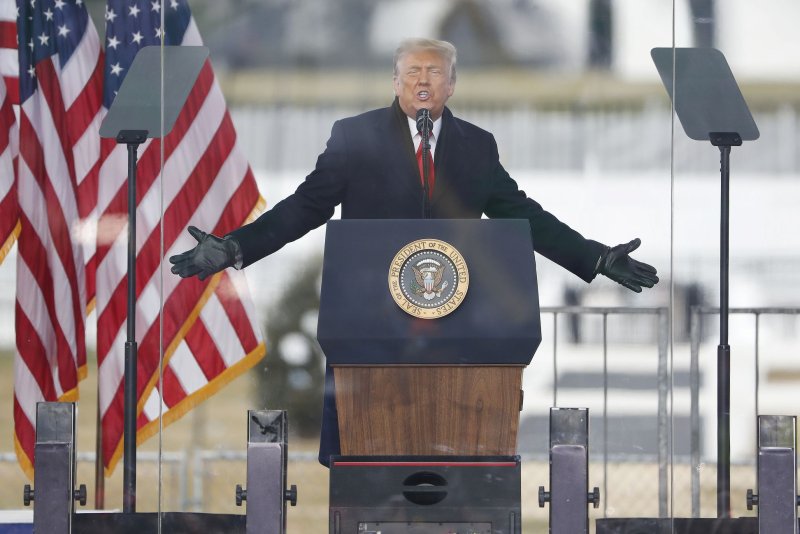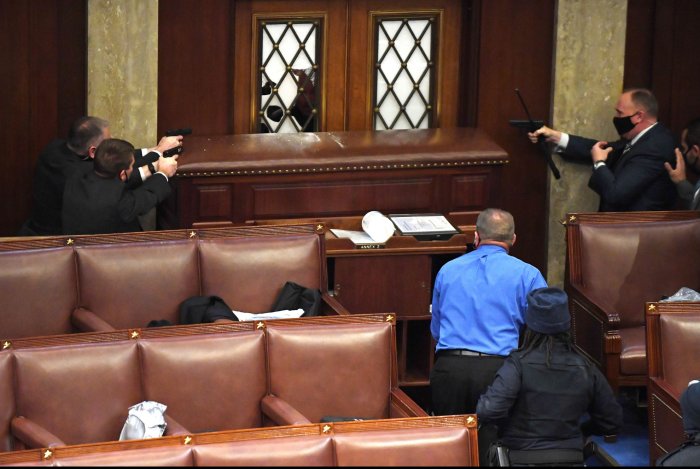Former President Donald Trump filed an emergency request for the Supreme Court to block the release of his White House records to the committee investigating the Jan. 6 riots at the U.S. Capitol. Pool photo by Shawn Thew/UPI |
License Photo
Dec. 23 (UPI) -- Former President Donald Trump on Thursday asked the Supreme Court to block the release of his White House records to the House select committee investigating the Jan. 6 siege on the U.S. Capitol.
Trump's attorneys filed an emergency request asking the Supreme Court to fully review the case and place a hold on a lower court decision allowing the release of the documents from the National Archives.
"The limited interest the committee may have in immediately obtaining the requested records pales in comparison to President Trump's interest in securing judicial review before he suffers irreparable harm," the filing states.
The 700 pages of documents include phone call logs, visitor logs, drafts of speeches, memos and handwritten notes which the House panel has said are necessary to properly carry out the investigation and determine what Trump knew before, during and after the attack.
Trump's lawyers have said the records should be protected under executive privilege but the U.S. Circuit Court of Appeals for the District of Columbia ruled on Dec. 9 that Trump has given "no legal reason" to cast aside President Joe Biden's assessment of "the executive branch interests at stake."
In their appeal to the Supreme Court, Trump's attorneys said the appellate court's decision would set a harmful precedent for disputes over access to former presidents' confidential records in the future.
"The D.C. Circuit's opinion endorsed the power of a congressional committee to broadly seek the records of a prior presidential administration and, as long as the incumbent president agrees to waive executive privilege, gain unfettered aces to confidential communications of that administration," the filing states. "This troubling ruling lacks any meaningful or objective limiting principle. In an increasingly partisan political climate, such records requests will become the norm regardless of what party is in power."
Trump's lawyers also said the case posed "novel and important questions of law that the court should resolve."
"While the protections of executive privilege and restrictions on access to presidential records are qualified, it is critical that future presidents and their advisers understand the contours and perimeters of that privilege -- and its exceptions -- after the conclusion of a presidential term," the filing states.
Law enforcement officers point their weapons as protesters
attempt to break into the House chambers at the U.S. Capitol during a joint session of Congress in Washington on January 6. Photo by Pat Benic/UPI |
License Photo
















